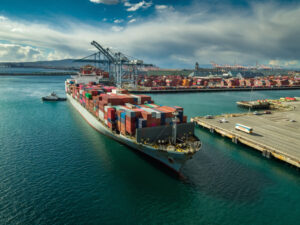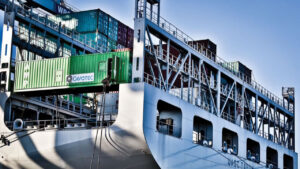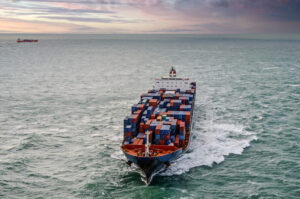Criminal networks are increasingly working towards the infiltration and control of major logistical points such as ports, found new report.
Europol, along with the Security Steering Committee of the ports of Antwerp, Hamburg, Bremerhaven, and Rotterdam, has launched a study that examines the issue and recommends enhanced collaboration between the public and private sectors to build a common front against organised crime.
The report highlights that criminal networks have been targeting Antwerp, Rotterdam, and Hamburg in particular.
Criminal organisations have traditionally relied on the corruption of large numbers of accomplices to infiltrate ports. However, new modus operandi that require the corruption of fewer individuals are being adopted.
One such method highlighted in the report is the use of misappropriated container reference codes, or PIN code fraud, which is gaining popularity as a means of extracting illicit goods from ports.
The use of misappropriated container reference codes, finds the report, requires the corruption of only one individual and either the corruption or a Trojan horse-style infiltration of extraction teams. These teams are then paid between 7 per cent and 15 per cent of the value of the illegal shipment.
READ: MSC ID-based Container Pick-up: Enhancing Security of Supply Chains to Keep Trade Flowing
The report also notes that maritime ports in the EU handle roughly 90 million containers each year, but authorities can inspect only between 2 per cent and 10 per cent of them. Meanwhile, at least 200 tonnes of cocaine have been trafficked through the ports of Antwerp and Rotterdam alone in the last few years.
Such vulnerabilities represent a challenge for law enforcement and an opportunity for criminal networks needing to access logistical hubs.
READ: TT Club urges IMO Member States to increase ‘sparse’ container inspections
Ylva Johansson, Commissioner for Home Affairs, said that the report lays bare the sophistication of criminal drug gangs, their strength, and their savagery.
“We are working with authorities at all levels to strengthen systems in the fight against the criminal activity this report outlines.”
READ: The prevention paradox – why ports can’t rely on cyber defenses and what to do about it
Europol’s Executive Director Catherine De Bolle said that an effective response is closer collaboration between the public and private sector.
“This report, the first ever created in cooperation with the ports of Antwerp, Rotterdam, Hamburg/Bremerhaven, is part of building this common front. This information exchange has led to deeper knowledge, which is the most effective weapon against organised crime.”









